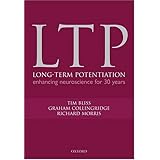
Average Reviews:

(More customer reviews)Conference proceedings are often of limited value, riddled with typographical errors and worth little more than the paper they are printed on, but this one is different. Originally published in the Philosophical Transactions of the Royal Society, the work has been materially changed and updated, so it is now virtually error free. First noticed 30 years ago, long-term potentiation (LTP) comprises a family of refractory phenomena that last for hours, days and weeks rather than the usual milliseconds; thus LTP offers an empirical basis for short-term memory.
Following an insightful introduction by the editors come seven chapters in a section on the early history of LTP research, which I found particularly valuable. More often than not, authors of research papers assume that their readers are familiar with the background studies; thus it is difficult to work one's way into an ongoing field. LTP is important in neuroscience because it has opened the possibility of confirming the concept of synaptic plasticity which was assumed by Donald Hebb in his classic work The Organization of Behavior. Thus studies of LTP are a means of getting at the corresponding physiological bases for memory. Although many unanswered questions remain, this empirical hook together with the techniques of molecular biology have already led to plausible microscopic means for realization of LTP - and of long-term depression (LTD) - which are ably described in the sections on induction and expression of the phenomenon. A section on persistence raises the difficult question of how long LTP can last (and why), and a section on function considers how this research impinges on experimental psychology, neatly bringing the discussion back to the original motivation. Finally a short section of three chapters sketches some of the directions in which future LTP and LTD research may be heading.
Click Here to see more reviews about: Long-term Potentiation: Enhancing Neuroscience for 30 Years
In the thirty years since its discovery by Terje Lomo and Tim Bliss, Long Term Potentiation (LTP) has become one of the most extensively studied topics in contemporary neuroscience. In LTP the strength of synapses between neurons is potentiated following brief but intense activation. LTP is thought to play a central role in learning and memory, though the exact nature of its role is less clear. In spite of years of research, there are many questions about LTP regarding its functional relevance that remain unanswered - for example, is it a model of memory formation, or is it the actual neural mechanism used by the brain to store information?This volume presents a state of the art account of LTP. It begins with lively accounts, by the scientists most closely involved, of the discovery of LTP and of the experiments that established its basic properties and induction mechanisms. Later contributions contain reviews and new research that cover the range of molecular, cellular, physiological and behavioral approaches to the study of LTP. Provocative, accessible and authoritative, this book makes it clear why LTP continues in equal measure to puzzle and beguile neuroscientists today.
Click here for more information about Long-term Potentiation: Enhancing Neuroscience for 30 Years

No comments:
Post a Comment